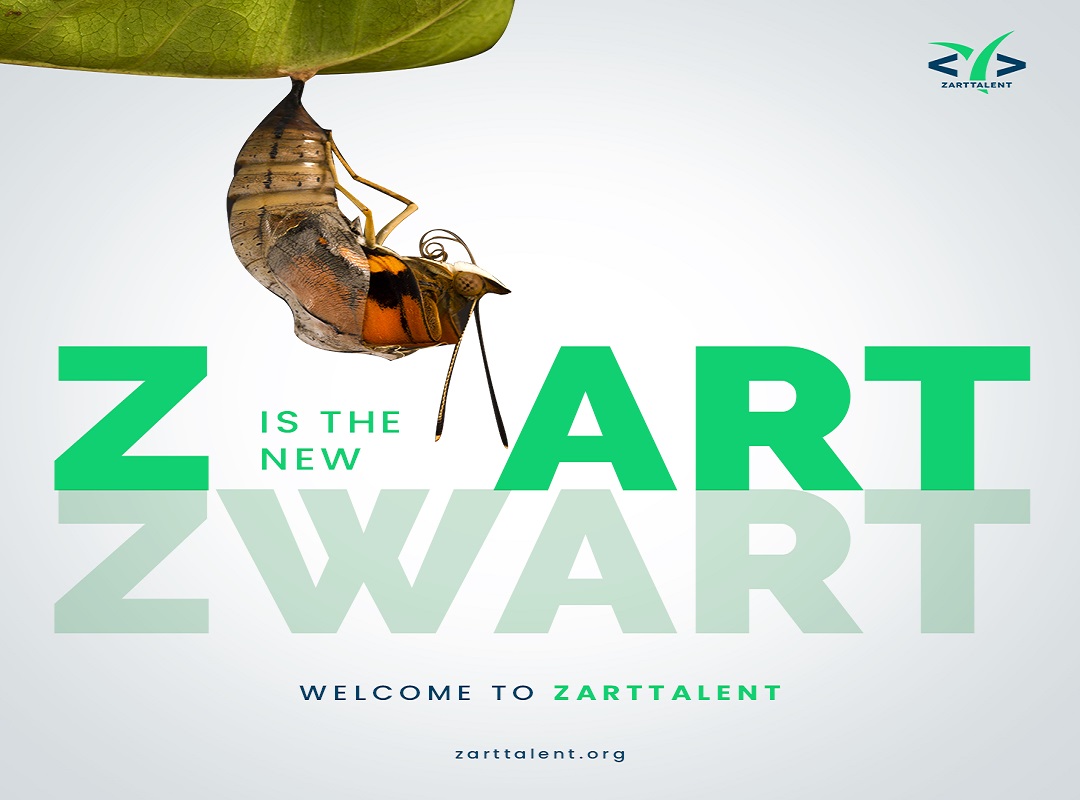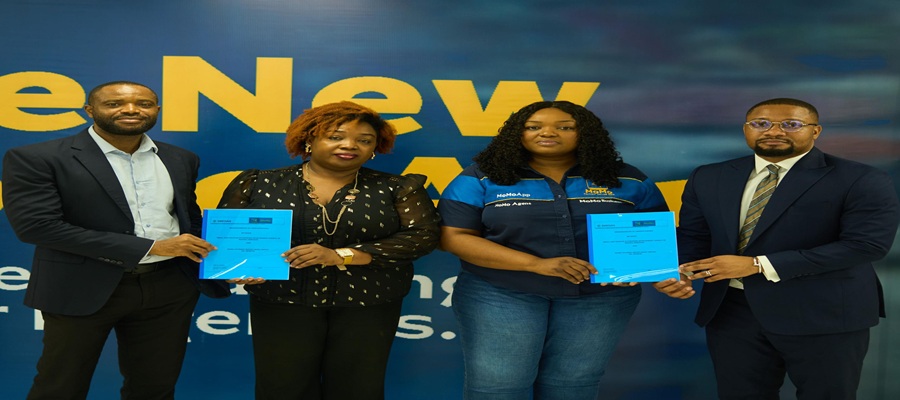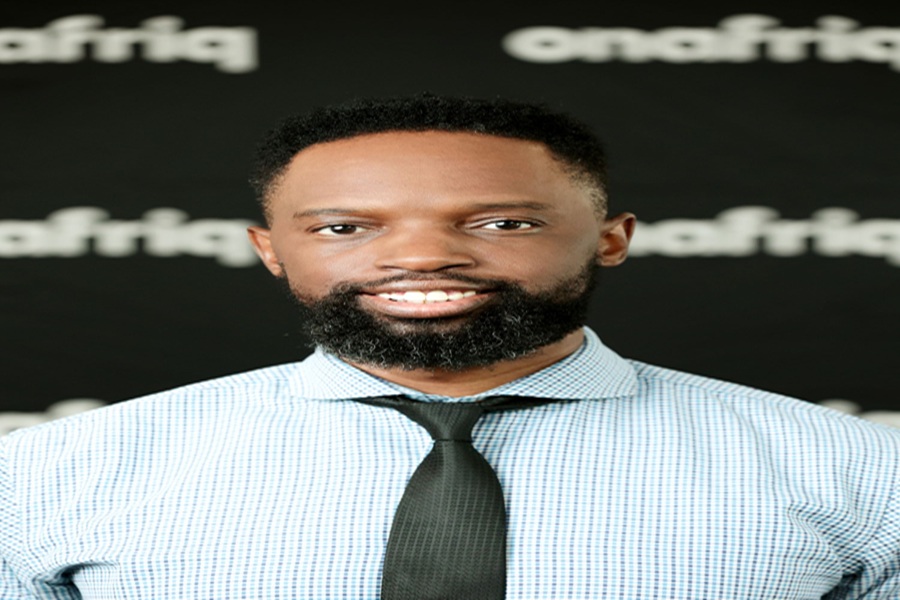Telecom
Zwarttech Rebrands to ‘Zarttech’ Sets to Double Down on its Mission to Bridge The Gap

Zwarttech, the Netherlands-based tech startup that bridges the opportunity gap by connecting the top 1% senior IT Experts from Africa with businesses in the West on a full or hybrid remote basis, has today announced that it is changing its name to Zarttech to strengthen its service offerings and consolidate its market position.

Founded in 2020 by Nelson T. Ajulo, the objective of Zwarttech is to spread economic opportunities to Africa from the West to the large numbers of senior IT talents in Africa so they can access high paying jobs from the comfort of their home.
This innovative approach has ensured that senior software experts do not need to move away from their loved ones, thus discouraging Africa brian drain while economically contributing to the Western economies, since the African resource is a perfect solution to the scarcity of senior Tech resources that the west is facing.
Since its launch, Zwartech has amassed over 800 vetted senior software developers from 15 African countries with the most robust IT pool from Kenya, Nigeria, Morocco and South Africa. Zwarttech has over 100,000 portfolios of senior IT experts, has more than 22 partners, including Invest Africa, The Hague Security Data (HSD), Google, StartupGrind and EU-Startups among others. In addition to this, the startup has worked with happy clients from Europe, the United Kingdom, Switzerland, Canada, India, and the United States.
With the vision, objectives and mission remaining the same, Zarttech aims to expand the unprecedented achievements of Zwarttech by getting the backing of big Non-Governmental Organisations, working with CSR departments and attracting more clients from across Europe, the US, the UK and other parts of the world without any bias.
Commenting on the name change, the founder of Zarttech, Nelson T. Ajulo, said, “I started Zwarttech to bridge the inequality gap I see growing up in our worlds, one where there is abundance and one where people struggle for their daily needs.
So bridging inequality was more about equity for us, boosting the weakest among us to have access to basic daily necessities, giving voice to those who are not heard and creating a platform that can connect the underutilised human resources and talents around the world.
“The thinking behind this is that if Zwarttech is successful, we can bring about positive reinforcement through identifying success, technology, innovation, globalisation, entrepreneurship, and positivity to the world. But our society is not ready, so we are changing our name from Zwarttech to Zarttech.
“We strongly believe that with Zarttech, we can start this vital conversation with this society and win their backing.
“This will eventually enable us to achieve our big mission to change the world, adding more positivity and possibilities while creating a new economy.”
Ajulo adds: “We are excited to continue our journey of bridging the opportunity gap with Zarttech, by connecting the top 1% of senior IT Experts from Africa with businesses in the West and upskilling underserved communities in the Netherlands, Nicaragua and several African countries (Nigeria, Ghana and Morocco) for free.”
Ajulo concludes that the name change also affects other Zarttech social solution projects, including Zart Talent Foundation (made up of Zart Academy, Zart Recruit and Zart Hub) and ZartCyber.
Telecom
MoMo PSB, SMEDAN Forge Pact to Digitise Nigeria’s SMEs

MoMo PSB, MTN Nigeria’s fintech powerhouse, sealed a game-changing pact with the Small and Medium Enterprises Development Agency of Nigeria (SMEDAN) on February 3 at its Victoria Island headquarters, unleashing digital and financial tools to turbocharge SMEs nationwide for seamless operations, revenue surges, and sustainable scaling.

MoMo PSB, SMEDAN
The partnership arms SMEDAN-registered merchants with MoMo’s multi-channel arsenal—apps, POS, USSD, partner portals, and custom platforms—to hoover payments across streams, automate payrolls, juggle tills and shop chains, and boss core business metrics from one slick dashboard.
This powerhouse duo targets Nigeria’s SME engine room, where digital chokepoints throttle growth, injecting MTN’s MoMo muscle to slash friction and unlock efficiencies for mama-put hustles to mid-tier factories alike.
Industry watchers hail the MoU as a masterstroke in President Tinubu’s economic revival playbook, fusing government SME scaffolding with private-sector fintech firepower to birth a new breed of digitally dominant entrepreneurs primed for AfCFTA conquests.
Telecom
MTN Ignites Teacher Revolution: 5,000 Digitally Armed for Phase Two

MTN Foundation and SAIL Innovation Lab have roared into Phase Two of their blockbuster Teachers Fellowship Programme, onboarding 5,000 elite educators from Nigeria’s 36 states and the FCT since January 13 to turbocharge public schools with cutting-edge digital wizardry and global teaching firepower.

MTN
This mobile-first crusade, laser-focused on arming primary and secondary school titans for the digital economy showdown, kicks off with a grueling four-week virtual bootcamp via WhatsApp and Google Classroom—slashing travel barriers for even the remotest rural warriors.
Organisers promise peer-to-peer fireworks and real-time gut-checks, capping Stage One with a virtual gala saluting milestones before culling the pack to a fierce “Top 500” via engagement, assessments, and hustle for Phase Two’s inquiry-based mastery and deep-dive digital metamorphosis.
MTN Foundation’s Executive Director Odunayo Sanya lit the fuse: “Teachers are the backbone of our education system. By empowering them with digital competencies and innovative teaching methods, we are directly investing in the future of our youth.
This Fellowship Programme is designed to ensure that our educators are not just keeping pace with global best practices but are actively shaping the next generation of innovators and leaders.”
Nigeria’s heftiest private teacher uprising scales from last year’s triumphs, minting classroom commandos as state ambassadors to ignite inquiry-driven, tech-fueled learning revolutions coast-to-coast.
Telecom
Onafriq, PAPSS Launch Wallet-Based Payments Pilot from Nigeria to Ghana

Onafriq Nigeria Payments Ltd, a CBN licenced payment service provider, partners with The Pan-African Payment and Settlement System (PAPSS) to pilot the continent’s first wallet-based outbound payments from Nigeria to Ghana – fully in Naira and instant, without relying on hard currency conversion, in partnership with Banks and Mobile Money Operators.

The pilot service, approved by the Central Bank of Nigeria (CBN), enables cross-border intra-Africa payments for individuals, merchants, and traders.
In particular, the service will benefit SMEs, the real engine of intra-African trade; all now have access to a faster, cheaper way to reach customers and suppliers across the border.
By reducing barriers to cross-border trade, the new service will allow these businesses to grow their addressable markets and activity. From the 1st of December, this service will be fully operational for a 6-month period.
Through the partnership with PAPSS, Onafriq is supporting the operationalization of the AfCFTA (Africa Continental Free Trade Area) mandate.
The mandate itself is driving tariff-free trade for the 54 member states of AfCFTA. Within the partnership itself, Onafriq provides the mobile money rails, with an ecosystem consisting of over 1 billion mobile wallets.
Meanwhile, PAPSS brings a network of over 160 commercial banks, representing an ecosystem of more than 400 million bank accounts across its 19 African countries of operation.
The two partners are essentially seamlessly connecting two worlds: mobile money and banking. As a consequence, intra-African trade transactions will take place more easily and opportunities will be created.
Currently, Africa is made up of bank and mobile-led markets, with siloes often inhibiting transactions between these economies. However, this partnership will remove these boundaries. With over one billion mobile wallets and 500 million bank wallets across Africa, this partnership will allow for cross-border collaboration at scale.
This partnership builds on Onafriq and PAPSS’ existing partnership for payments into Ghana, announced earlier this year.
Mxolisi Msutwana, Managing Director Anglophone West Africa said, “Our work with PAPSS shows what collaboration at scale can unlock—seamless, secure connections between banking systems and mobile money ecosystems.
“This is how we open bi-directional trade corridors, reduce costs for businesses, and give African enterprises the rails they need to trade with confidence in their own currencies. The vision is continental, but it starts with practical steps like this one.”
Ositadimma Ugwu, Chief Information Officer, PAPSS, added “Too often, African businesses and individuals see borders as roadblocks instead of opportunities. With this step, we’re challenging that mindset, giving Nigerians the ability to send value next door with the same ease as sending a text message.
“Our vision is simple: make Africa’s borders invisible to payments. This pilot makes that a reality, moving us closer to a continent where payments don’t pause at the border.”
This new Nigeria-to-Ghana outbound capability builds on the successful Ghana-to-Nigeria instant payments corridor launched earlier this year – further proof that Africa’s payments future is local, instant, and inclusive.

 E-Financial3 days ago
E-Financial3 days agoAccidental Billionaire Opts for Jail Instead of Returning Money Credited Him by Mistake

 News3 days ago
News3 days agoUS Set to Deport 79 Nigerians on Criminal List

 News3 days ago
News3 days agoUngoverned AI is Quietly Scaling Risk in Nigeria – Dr. Naiho

 Telecom3 days ago
Telecom3 days agoAirtel Nigeria Commits to Boosting Nigeria’s Digital Infrastructure

 E-Financial3 days ago
E-Financial3 days agoSEC Warns of Potential Ponzi-style Risks in AURUM BOT, ModMount

 E-Business2 days ago
E-Business2 days agoOADC Lagos Reinforces Commitment to Local Data Hosting and Digital Transformation @ NDPC’s National Privacy Week Summit

 Telecom3 days ago
Telecom3 days agoGoogle, African Partners Launch WAXAL to Empower 100m Africans in AI Era

 News3 days ago
News3 days agoFirst Lady Commissions Dream Centre @ OAU























